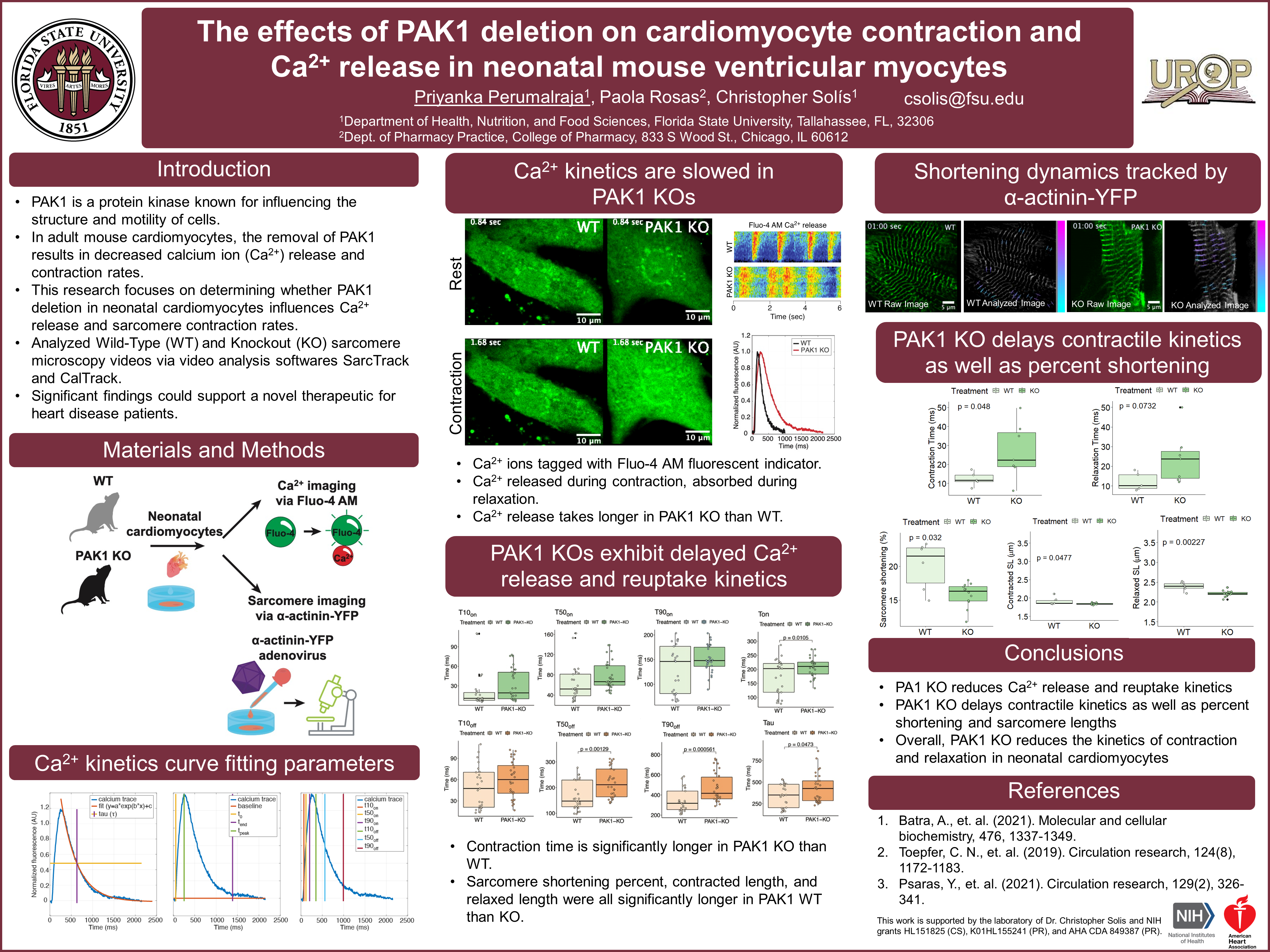Research Symposium
24th annual Undergraduate Research Symposium, April 3, 2024
Priyanka Perumalraja Poster Session 2: 10:45 am - 11:45 am/2

BIO
My name is Priyanka Perumalraja and I am a Computational Biology researcher from Boynton Beach, Florida! I'm interested in the intersection of data science and technology with biology, especially how it can improve biological discovery. Throughout my educational and professional career, I plan to involve myself in biotechnology and work with diverse interdisciplinary communities.
The effects of PAK1 deletion on cardiomyocyte contraction and Ca2+ release in neonatal mouse ventricular myocytes
Authors: Priyanka Perumalraja, Dr. Christopher SolisStudent Major: Computational Biology
Mentor: Dr. Christopher Solis
Mentor's Department: Health, Nutrition, and Food Sciences Mentor's College: Health and Human Sciences Co-Presenters:
Abstract
PAK1 is a kinase known for influencing the structure and motility of cells. In adult mouse cardiomyocytes, the removal of PAK1 results in decreased calcium ion (Ca2+) release and contraction rates. This research focuses on determining whether PAK1 deletion in neonatal cardiomyocytes influences Ca2+ release and sarcomere contraction rates. To test whether PAK1 deletion influences sarcomere contraction and Ca2+ release rates at the myocyte level specifically, neonatal mice cardiomyocyte cultures were used to compare wild type (WT; without PAK1 deletion) and knockout (KO; with PAK1 deletion) mouse strain. Contraction was tracked using fluorescently labeled α-actinin-YFP infected into cardiomyocyte cultures. Ca2+ release was tracked using Ca2+ indicator Fluo-4 AM fluorescence. Contraction and relaxation time in the PAK1 KO was significantly higher than the WT. Conversely, sarcomere shortening was significantly lower in PAK1 KO than the WT.000000. Contracted and relaxed sarcomere lengths were also significantly shorter in the KO than WT. The removal of PAK1 in the KO samples led to decreased Ca2+ release. The deletion of PAK1 significantly influences the contractile kinetics and Ca2+ release of neonatal mice cardiomyocytes. This suggests that PAK1 deletion shows early signs of depressed contraction and Ca2+ release in neonatal cardiomyocytes.
Keywords: Biology, Tracking, Computer Science, Heart


